German Media Bloggers
“Blogging is a form of cultural technology”
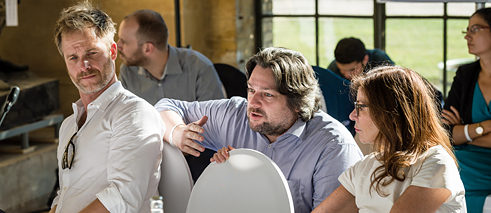
The media in Germany are coming in for quite a lot of criticism these days: lack of transparency, partiality and structural dependencies are just a few of the allegations. This situation has paved the way for blogging – a form of publication whose main competency is the greatest possible degree of independence in its reporting. Numerous media blogs deal critically with journalistic reporting. But to what extent can a blog successfully establish a counter-public and what are the different or shared goals? Goethe.de interviewed important German media bloggers. A look behind the scenes of a cultural phenomenon.
Carta – Leonard Novy: “The Freedom to intervene in the public debate”
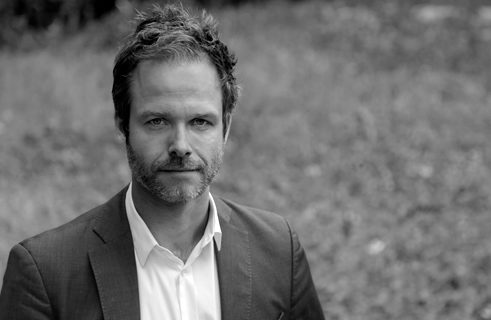 Leonard Novy (Carta)
| Foto (Ausschnitt): © Leonard Novy
Leonard Novy (Carta)
| Foto (Ausschnitt): © Leonard Novy
Mr. Novy, Carta has been in existence since 2008, it has won several prizes and in 2016 it was awarded the Lead Award in Gold in the category Online Independent of the Year. What particular discourse do you want to trigger with your blog?
We are a multi-author blog with strong opinions on the topics of democracy, the public sphere, and the media, and we live from contributions submitted by renowned authors from the realms of journalism, science, politics and culture. In the years after its founding, when digitisation was politically still a niche theme, Carta rapidly developed into a kind of authority – and a driving force – in the debates about media and politics in the digital age. Since then, our focus has broadened, and we now delve into social issues and developments. Our thematic framework is formed by questioning the present condition and future of the public sphere and democracy. Not only the media and journalism are in a state of upheaval, but also the public sphere in general. It has always been Carta’s aim to shed light onto this structural change.
Where would you locate “Carta” on the German media landscape?
I see Carta as part of a pluralistic media landscape, one which, of course, could do with embracing more new projects with more journalistic aspirations and that are more innovative. At the same time, we have always seen ourselves as a “media-critical” project that addresses the dysfunctioning and misconduct of the “big” media, i.e. the lack of transparency of the public broadcasters, the journalistic gaffes of various individuals or the “uniform mindset” of many media players, as was the case regarding the Greek crisis.
What does blogging mean to you personally?
Carta gives me the freedom every now and then to intervene in the public debate, to set a particular tone and to provide a platform for authors, issues or particular trains of thought that have so far been neglected in the public debate. I am also particularly fond of responding quickly to developments and commenting on them, or even publishing longer texts, which are simply too long or too complex for the larger media.
Netzpolitik – Markus Beckedahl: “Blogging is a form of cultural technology.”
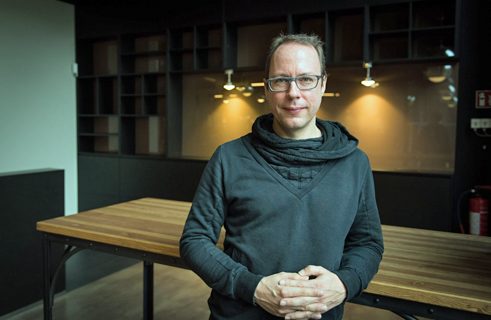 Markus Beckedahl (Netzpolitik)
| Photo (detail): © Daniel Mueller
Mr. Beckedahl, Netzpolitik is considered to be one of the most influential German political blogs. You founded the site 15 years ago, in 2002. What was your motivation back then?
Markus Beckedahl (Netzpolitik)
| Photo (detail): © Daniel Mueller
Mr. Beckedahl, Netzpolitik is considered to be one of the most influential German political blogs. You founded the site 15 years ago, in 2002. What was your motivation back then?At the time, there was something missing on the Net, a place where a lot of information about internet policy issues could be bundled and collected, and so I created it myself. In the beginning, it was a pure “link sling”, a project on the side. With time, however, the content has become more journalistic and thematically broader. In the meantime, from the perspective of what our fundamental rights are in the digital age, we report journalistically about how politics is changing the Internet and how the Internet is changing everything else.
What are your goals today?
We want to inform people and motivate them to intervene in our democracy. We are read by around 60,000 users every day, including many decision makers from the realm of politics, many disseminators and even more by citizens who are simply interested and have an increased awareness of the topics. “Fight for your digital rights” is both our attitude and imperative in one.
What does blogging mean to you personally?
Blogging, or in more general terms, publishing on the Net is a form of cultural technology. What used to be only possible in the form of a blog is now possible on every social media account.
Fit fOR JOURNALISM – Bettina Blass, Timo Stoppacher: “For newcomers, career changers and shooting stars in journalism”
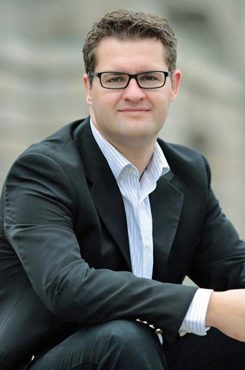 Timo Stoppacher (Fit für Journalismus)
| Photo (detail): © Timo Stoppacher
Ms. Blass, Mr. Stoppacher, Your blog Fit for Journalism is aimed at journalists and those who want to become one. Why is it that so important today?
Timo Stoppacher (Fit für Journalismus)
| Photo (detail): © Timo Stoppacher
Ms. Blass, Mr. Stoppacher, Your blog Fit for Journalism is aimed at journalists and those who want to become one. Why is it that so important today?Timo Stoppacher: Because there are hardly any realistic insights into working as a free-lance journalist. Many young people who would like to become a professional journalist have this image of journalists as regular members of an editorial staff and rushing from one appointment to the next. In reality, more and more journalists are working on a free-lance basis – either because they want to or because they have to. Our topics therefore focus on all aspects of self-employment.
Bettina Blass: And they are not only important for young people, but also for older people who may suddenly have to work as freelancers, because they were given notice at their last job.
“Fit for Journalism” is a mixture of service offers, interviews, reports, commentaries and user responses. What are the advantages of a blog compared to the classic editorial formats?
 Bettina Blaß (Fit für Journalismus)
| Foto (Ausschnitt): © Bettina Blaß
Bettina Blass: With a blog there is no editorial corset keeping you in line. You can determine for yourself what you publish and in what form and length. This does not mean that we publish unverified facts. We also adhere to the guidelines of quality journalism in our blog.
Bettina Blaß (Fit für Journalismus)
| Foto (Ausschnitt): © Bettina Blaß
Bettina Blass: With a blog there is no editorial corset keeping you in line. You can determine for yourself what you publish and in what form and length. This does not mean that we publish unverified facts. We also adhere to the guidelines of quality journalism in our blog.Timo Stoppacher: Our blog enables us to publish our own opinions and give insights from our own everyday practice as independent journalists.
What does blogging mean to you personally?
Timo Stoppacher: First and foremost fun, it is also a form of self-marketing.
Bettina Blass: For me, it is also a form of self-realisation – I only work on themes that I enjoy. For customers, I, of course, also do research and write about other topics. However, since we have been running our blog we have been asked several times to hold lectures. That is why the amount of time we spend working on the blog time is well organised.
Bildblog – Moritz Tschermak : “We want to change journalism for the better.”
Mr. Tschermak, how did you hit upon the name – Bildblog? Moritz Tschermak (Bildblog)
| Foto (Ausschnitt): © Privat
The blog started in 2004 as a so-called watchblog, a blog which critically questioned the work of the Axel Springer publishing house, with its magazine Bild, the online site Bild.de and Bild am Sonntag. Our aim was to point out mistakes in the reporting, for which all the Bild media products have been criticized for a long time – for example, sloppy research or the infringement of personality rights. In 2009, Bildblog extended its investigations to all German-speaking media. We want to contribute to a change in journalism in Germany – a change for the better. For example, by correcting the mistakes that we have drawn attention to.
Moritz Tschermak (Bildblog)
| Foto (Ausschnitt): © Privat
The blog started in 2004 as a so-called watchblog, a blog which critically questioned the work of the Axel Springer publishing house, with its magazine Bild, the online site Bild.de and Bild am Sonntag. Our aim was to point out mistakes in the reporting, for which all the Bild media products have been criticized for a long time – for example, sloppy research or the infringement of personality rights. In 2009, Bildblog extended its investigations to all German-speaking media. We want to contribute to a change in journalism in Germany – a change for the better. For example, by correcting the mistakes that we have drawn attention to.And have you been successful in your efforts?
It is, in fact, the case that mistakes that we point out are now being corrected quite quickly by some editors. This is noticeable, for example, in bulletins released by the DPA news service. As some DPA journalists follow us on the social media, the reports or articles are usually updated immediately after our blog has been posted. Another example is the reporting of suicides. Here there is the risk of the “copycat” effect, which had been ignored by many editorial offices for a long time. We can say that it was also to the merit of Bildblog that all German media now print a warning for vulnerable persons under almost all reports on suicide.
What added value do you personally see in blogging?
Quite a lot of freedom to write about what I want to write about, completely free from any publishing constraints and restrictions. I personally am quite free in the choice of topic I want to deal with. The fact that we are able to reach a fairly large number of people with relatively minimal resources is the great strength of publishing on the internet.
Übermedien – Stefan Niggemeier/Boris Rosenkranz: “Independent criticism of the media is more important than ever.”
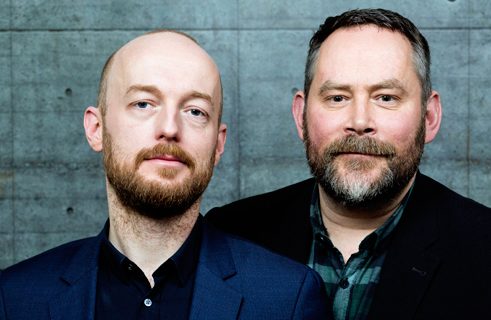 Boris Rosenkranz, Stefan Niggemeier (Übermedien)
| Photo (detail): © Private
Mr. Rosenkranz, Mr. Niggemeier, Übermedien looks like a professional web magazine for media criticism. Are you trying to compete with the many sector analysis services in Germany?
Boris Rosenkranz, Stefan Niggemeier (Übermedien)
| Photo (detail): © Private
Mr. Rosenkranz, Mr. Niggemeier, Übermedien looks like a professional web magazine for media criticism. Are you trying to compete with the many sector analysis services in Germany?No, not at all. We are actually different. Übermedien does not just look like a professional media magazine, it is one. We see ourselves less as a blog, because what we do is basically the same as what other journalists do, it is just that we report “about the media” – i.e., how a business journalist deals with business or a sports journalist with sports. There is, however, one important factor that makes us very different to the traditional journalistic formats - we are completely independent of broadcasters and publishers, and unlike the other sector analysis services, we not only target journalists, but especially people who use the media. That means more or less – everyone.
Why is that so important?
Because the relationship between journalists and certain sections of the general public in Germany – and not just there – is disturbed. This can be seen, for example, in the sweeping judgments about the alleged “lying press”. And because there is simply so much to criticize, particularly in the times of change that journalism is going through at the moment. Nevertheless, the established media are unfortunately still having difficulties dealing with criticism. It was therefore important for us to create Übermedien, in order to express differentiated criticism, true to our slogan – “Better Criticism of the Media”.
“Übermedien” is the first blog that has tried to finance itself via subscriptions. How does that work?
Our subscribers pay 3.99 euros a month, this provides us with long-term planning security and they, in return, can read exclusive contributions – only later do these contributions become freely accessible for everybody. It would be nice if we could offer our content free of charge in the medium term to all our readers - right from the start. This would enable our contributions to be more widely spread, that is important, otherwise there is no point.
iRights.iNfo – David Pachali: “Blogs can be a corrective force.”
Mr. Pachali, with iRights.info, as the title suggests, it is all about rights and legal issues in the digital world. What developments have you been able to initiate, what can and do you want to change politically? David Pachali (iRights.info)
| Photo (detail): © Privat
iRights.info is an information portal and web magazine that deals with copyright, creativity and much more in the digital world. Some of our readers ask questions about what music they should use in their Youtube videos. Others are interested in current political, legal and other developments: for example, what does this or that particular judicial verdict mean? What is the EU planning when it comes to copyright law? We want to contribute to an informed debate on copyright, rules and regulations taking place on the Internet. However, iRights.info is not aiming to convert people to a certain political way of thinking.
David Pachali (iRights.info)
| Photo (detail): © Privat
iRights.info is an information portal and web magazine that deals with copyright, creativity and much more in the digital world. Some of our readers ask questions about what music they should use in their Youtube videos. Others are interested in current political, legal and other developments: for example, what does this or that particular judicial verdict mean? What is the EU planning when it comes to copyright law? We want to contribute to an informed debate on copyright, rules and regulations taking place on the Internet. However, iRights.info is not aiming to convert people to a certain political way of thinking.Do you see your blog as a kind of counter-public?
That sounds very simplistic. No way am I of the opinion that there is such a thing as “the mainstream media” against which we should compete. But maybe in some points it is actually valid. There are always topics where iRights.info takes a different view of things. For example, I often see deficits when publishers report on developments that affect them. In such cases iRights.info and other blogs can be a corrective force.
What does blogging mean to you?
To me, a blog is just a technical framework that can be used for many different purposes. At iRights.info we use it to provide information. “Blogging” as such does not really take place in my opinion.
Franziskript – Franziska Bluhm: “An outlet, a playground, to a certain extent a mouthpiece”
 Franziska Bluhm (Franziskript)
| Photo (detail): © Privat
Franziska Bluhm (Franziskript)
| Photo (detail): © Privat
Ms Bluhm, on Franziskript you introduce yourself with the words, “I often write about private things, but sometimes not.” What are your topics?
Since 2003, my blog has been my playground and my channel for all the things I did not manage to get rid of on other channels and for things I wanted to try. I blog about things that are important to me and which affect me – as I am active in the media sector, often about these topics. Finding out how a podcast works, designing a video format, testing certain topics is often easier on a private blog, because a blog is not immediately associated with the media brand (that often looks back over a long tradition).
You are a member of the Golden Bloggers Jury, which has regularly honoured the best German bloggers since 2007. What does blogging mean to you personally?
It is an outlet, a playground and to a certain extent a mouthpiece. Blogs give any individual a form of journalistic power that is quite independent of the established media brands.
Never before have individuals had so many opportunities to reach other people with relatively little effort. Do you use your blog as a counter-public sphere?
If I did that, I would be personally ascribing too much importance to myself. But basically blogs provide a public sphere for people with similar interests. It has never been easier to find people who think the same way about an issue, no matter how obtuse it may be, and to exchange these ideas on blogs and on the social media.
Indiskretion Ehrensache – Thomas Knüwer: “You have to discuss what has to be changed in the media world to ensure its survival.”
 Thomas Knüwer (Indiskretion Ehrensache)
| Photo (detail): © Private
Mr Knüwer, the name of your blog alone sounds as if you are ready to do battle – Indiskretion Ehrensache (Indiscretion as a Matter of Honour) – Notes from the Everyday Life of the Media”! What discourse are you trying to trigger?
Thomas Knüwer (Indiskretion Ehrensache)
| Photo (detail): © Private
Mr Knüwer, the name of your blog alone sounds as if you are ready to do battle – Indiskretion Ehrensache (Indiscretion as a Matter of Honour) – Notes from the Everyday Life of the Media”! What discourse are you trying to trigger?I am still speechless about how backward the German media are in their approach to the issue of digitisation - and this has not changed in recent years. In fact, that was the reason I started my blog in 2005. I do not believe that we can move forward if we keep telling ourselves that everything is going to be just fine and dandy. If media houses do not radically change their thinking and their processes, they will no longer be able to survive. I am firmly convinced that we must openly discuss what and how the media world must change in order to keep it alive. In addition, writing is fun, and the blog was initially a place where I could let off steam without having to deal with the physical and organisational constraints of a daily newspaper. This is still the case. What I actually want is to have fun with my blog and be mentally inspired by my readers.
Since 2007 you have been honouring people with the “Golden Bloggers” award. Who and what is behind that?
I do not award this prize alone, but in collaboration with Franziska Bluhm from the Verlagsgruppe Handelsblatt, Daniel Fiene from the Rheinische Post Online and the free-lance journalist Christiane Link. The Golden Bloggers were at first intended to be a satire on awards ceremonies and we never thought the whole thing would be taken seriously. But as is often the case on the Internet, many people took our award more seriously than we did. And so, what once began in a living room with a webcam poised on an ironing board has now become a public gala event at a café/restaurant called Basecamp in Berlin.
What does a blog have to have to be nominated by you?
In a nutshell – to get nominated, a blog has to be one that has really caused a stir that year.
Ingeseibel.de – Inge Seibel: “First and foremost my blog is my calling card as a free-lance journalist”
 Inge Seibel (ingeseibel.de)
| Photo (detail): © Inge Seibel
Inge Seibel (ingeseibel.de)
| Photo (detail): © Inge Seibel
Ms. Seibel, you blog about journalism and the social media – but that’s not all!
Ingeseibel.de is actually two blogs in one. I have been a passionate radio journalist for 30 years. Radio is therefore the main subject I deal with, along with the social media, especially Twitter. I focus a lot on the future of radio or reports about flagship projects. Recently, I even tried a virtual radio quiz. It was a hit, but it is quite a lot of work. The second mainstay of my blog are my virtual travel diaries – which, however, are often connected with the media in some way.
As a journalist, you also present your topics in classic formats such as radio broadcasts or articles. Why do you blog?
Because I can write and comment on whatever I like and however much I like, without having to adhere to the rules of an editorial office or instructions from a chief editor. This applies to the selection of the subject matter and, of course, to the style, which can be much more personal in a blog than in an article. Although I would like to emphasize that in my blog I also adhere to the basic values of journalism. I do not make any claims without quoting the source or doing research. First and foremost, my blog is my calling card as a free-lance journalist.
How critical can such a “blog calling card” be?
A difficult question. Before I started with my own blog, my husband and I ran a web-video project, blogmedia TV. In a short video, we reported on a monthly basis on the ups and downs in the realms of print, radio, TV and internet. This was very complex, we had to do a lot of research and unfortunately there were more downs than ups. At some point then we decided to abandon the project. To be honest, I did not like the idea of becoming the eternal “media moaner”. But even today I still sometimes blow my top. Then, in my blog, I use the opportunity to take a stand against the public (or media) opinion of some of my colleagues.